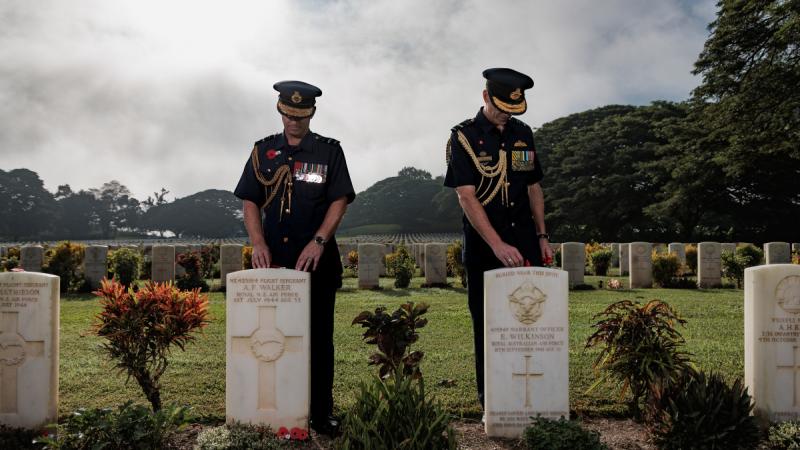The Minister for Climate Change welcomes the Ministry for the Environment’s appointment of an expert panel to create the framework for New Zealand’s first National Climate Change Risk Assessment.
“The National Climate Change Risk Assessment (NCCRA) will provide a national overview of how climate change is likely to impact New Zealand, and will identify where the gaps in our knowledge are,” says the Minister for Climate Change, James Shaw.
“We need to be assessing now what the future risks of climate change will be, and where and how New Zealand needs to adapt. We also need to be able to anticipate what our most challenging issues are likely to be.
“The NCCRA will inform and help prioritise effective adaptation action,” James Shaw says.
The initial step is to create a risk assessment framework, which will enable comparisons of a broad range of risks.
The nine members of the NCCRA expert panel who have been picked to do that work come from a range of backgrounds, including research, engineering, and the public sector.
Panel members have expertise in climate change risk and risk assessments, vulnerability assessments, and risk in the context of Te Ao Māori.
The panel will be chaired by Dr Anne Bardsley.
Dr Bardsley has come from the Office of the Prime Minister’s Chief Science Advisor where she led work on risk and emergencies. This work programme produced two reports in 2016 on “Making decisions in the face of uncertainty”.
“Without a national-level risk assessment system we’ll continue to be unprepared for climate change,” says James Shaw.
“New Zealand faces a broad range of climate-related impacts. We’re already starting to see some now.
“Coastal Hazards and Climate Change guidance for local government drew on 2015 work by the Parliamentary Commissioner for the Environment which warned building replacement costs from climate change in New Zealand could total $19 billion.
“Local Government NZ estimates $2.7 billion of council roading, water, and building infrastructure are at risk from 0.5 metres of sea level rise, and that increases to $14.1 billion with three metres of sea level rise, and LGNZ says those are probably conservative estimates.
“Auckland Council recently released its climate change risk assessment which says nearly one quarter of the region’s buildings – over 127,000 buildings – are exposed to flood hazards.
“So, starting this risk assessment is an important step towards building a more resilient New Zealand,” James Shaw says.
The panel will produce a National Climate Change Risk Assessment framework by the end of June and the first risk assessment will be completed by the middle of next year.
List of Panel members
Name | Organisation | Short Bio |
Acushla Dee Sciascia | Māpuna Consultants and Massey University | Dee is the co-lead for the Mātauranga Māori programme in the Resilience to Natures Challenges National Science Challenge. She has worked in the mātauranga Māori and kaupapa Māori spaces for the duration of her academic career. She is a social scientist and an accomplished kaupapa Māori researcher. |
Anne Bardsley (Chair) | University of Auckland | During her time in the Office of the Prime Minister’s Chief Science Advisor, Anne led the group’s work programme on risk and emergencies, which produced two reports on the topic of understanding risk, to support making decisions in the face of uncertainty. Anne is currently an Associate Director – Research at the Centre for Science in Policy, Diplomacy and Society. |
Bapon Fakhruddin | Tonkin + Taylor | Bapon is an international disaster risk reduction, early warning system and hazard modelling expert who is a regular adviser to the United Nations on natural hazard resilience and climate change adaptation. Bapon is currently undertaking climate risk and vulnerability assessments for several Pacific and South-East Asian nations on behalf of the World Bank and Asian Development Bank. |
Rob Bell | National Institute of Water and Atmospheric Research | Rob has 38 years’ experience in diverse areas of coastal engineering, coastal oceanography, natural hazards, risk assessment (setting up RiskScape), water quality, and coastal climate-change impacts and adaptation. His expertise includes natural hazard and risk assessments, and he was the lead co-author of the Ministry for the Environment’s 2017 Coastal Hazards and Climate Change guidance for local government. |
Roger Fairclough | Neo Leaf Global | Roger is an internationally recognised expert on infrastructure resilience and has extensive experience across policy and practice. He was involved in developing the Emissions Trading Scheme (ETS) and reporting on energy sector emissions. His career spans government, State Owned Enterprises and the private sector. He is currently Chair of New Zealand Lifelines (Utilities) Council and a number of research end-user advisory groups. |
Shaun Awatere | Landcare Research | Shaun is a resource economist for Landcare Research. He has been working to improve the incorporation of Mātauranga Māori into local government planning by developing the systems and processes that will enable Māori values to be integrated into urban design and development. |
Wendy Saunders | Institute of Geological and Nuclear Sciences | Wendy is a social scientist at GNS Science specialising in land use planning and natural hazards, including hazards that are exacerbated by climate change. Her work includes engaging with communities, councils and others, to improve the way natural hazards are incorporated into planning for land use. Wendy is on the leadership team for the climate focused Deep South National Science Challenge. |
The panel also includes representatives from the Department of Prime Minister and Cabinet and the Ministry of Civil Defence and Emergency Management. The panel is supported by a small Secretariat based at the Ministry for the Environment.







